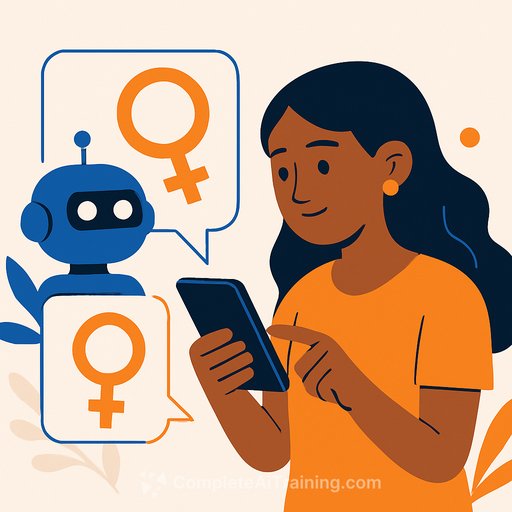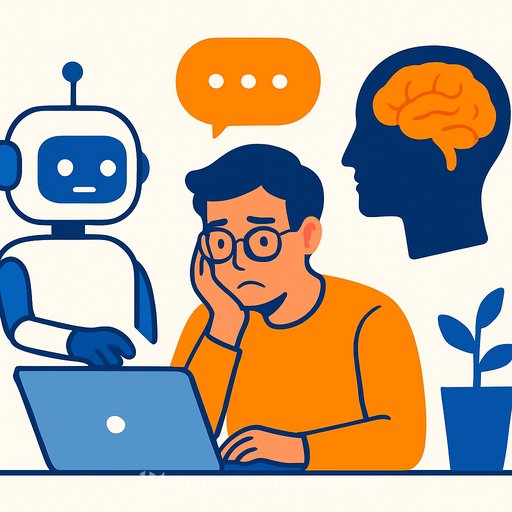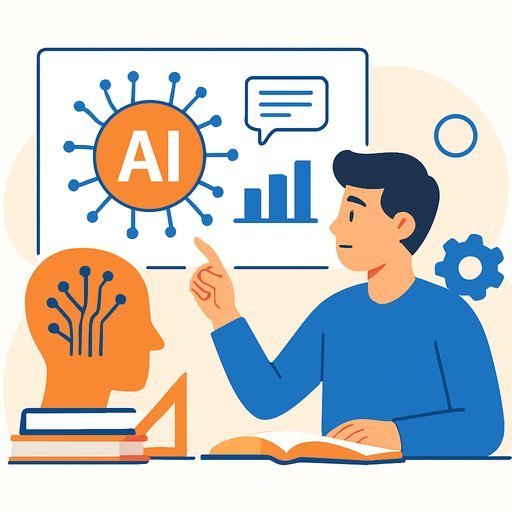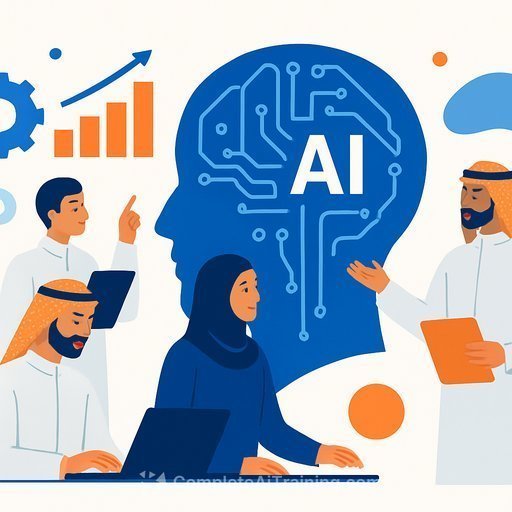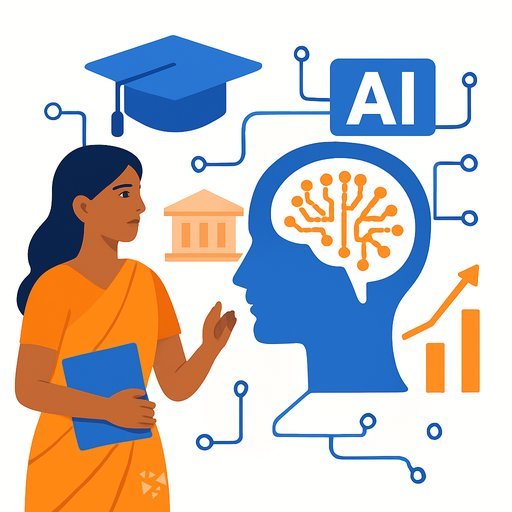AI-Powered Chatbots Bring Sex Education to the Global South
In a remote village in Jharkhand, India, a young girl quietly wonders, “When will I get my period?” Instead of asking family, she opens WhatsApp on a shared phone and types her question to Disha Didi, an AI chatbot that feels like an older sister offering guidance. This scenario is common for thousands of women across India, Lebanon, Congo, and Latin America, who rely on chatbots for sexual and reproductive health and rights (SRHR) information they can't easily access at home or school.
This shift highlights a significant gap in education. Many young people turn to chatbots because schools, families, and health systems often do not provide basic SRHR knowledge. For example, a report by Dasra reveals that 71% of adolescent girls in India do not know about menstruation before their first period, leading to anxiety and health risks. In much of the Arab world, SRHR education is often taboo or filled with misinformation, leaving young people without reliable guidance.
Where traditional education and health systems fall short, chatbots like India’s Disha Didi and Lebanon’s Ask Aunty offer discreet, culturally sensitive, and trustworthy information on topics ranging from menstruation to contraception.
Disha Didi: India’s Virtual Older Sister
The Ipas Development Foundation (IDF), an NGO focused on sexual and reproductive health, has long worked to improve access to safe abortions. Over the years, they identified that young women in rural India faced barriers such as societal norms, limited family support, and scarce health services, leaving them without essential SRHR knowledge.
To bridge this gap, IDF initially trained youth leaders to share SRHR information and connect women to health services. However, COVID-19 halted in-person outreach, prompting the creation of Disha Didi — a WhatsApp chatbot delivering information directly to young people in rural communities.
Pallavi Lal from IDF explains, “Among youth aged 15 to 24, there was a lack of knowledge and agency, and a stigma around seeking SRHR information.” The chatbot communicates in Hindi and Bengali, covering states such as Assam, Madhya Pradesh, Jharkhand, and West Bengal. It maintains privacy by avoiding notifications, keeping conversations hidden from family members.
Disha Didi was developed collaboratively with gynecologists and youth community members to ensure content meets local needs. It handles over 20,000 questions, with the name itself chosen by adolescent users. Interaction options include navigating topics via a menu, typing open questions, or connecting to a human counselor for detailed advice.
Since launching in 2020, Disha Didi has engaged 29,000 unique users and managed over 72,000 conversations. Around a third focus on menstruation, while adolescence and sexually transmitted infections each account for about a fifth of inquiries. These figures reveal the areas where young people most often seek support.
Ask Aunty: Trusted Guidance in the Arab World
Lebanon’s media organization Raseef22 noticed a surge in SRHR-related searches on their site. Rokaya Kamel, who leads AI integration, shares, “A third of our organic clicks last year were SRHR queries.” To respond effectively, they created Ask Aunty, an AI chatbot developed with support from Google News Initiative’s JournalismAI Innovation Challenge.
Ask Aunty pulls information exclusively from Raseef22’s editorial archive and vetted partner content, ensuring reliability and relevance. The chatbot admits when it doesn’t have an answer and guides users to trusted medical resources.
The persona is a witty 56-year-old Egyptian aunty, speaking in Egyptian Arabic—the most widely understood dialect across the Arab world. Line Itani, product and communication manager, notes the choice was both culturally sensitive and intended to create a warm, experienced voice for delicate topics.
Careful attention was given to tone and language to ensure Ask Aunty feels like a safe space. Instead of colloquial terms that carry cultural biases, the chatbot uses medical terminology to address sensitive issues like female genital mutilation (FGM). For instance, it avoids euphemisms and uses the technical term tashwih al-a'daa al-tanasuliya al-unthawiyya to clearly communicate the harm caused by FGM.
Developing the chatbot also involved ongoing linguistic refinement to ensure Arabic sentences are grammatically correct and natural. Now in beta, Ask Aunty will soon be accessible on web and app platforms, providing private, trustworthy support to young people across the Arab world.
Filling the Education Gap with Technology
These chatbots empower young people to access vital SRHR information and make informed decisions—something traditional systems have struggled to deliver. Their success underscores the urgent need for accessible sex education and demonstrates how thoughtful technology can meet that need effectively.
For educators and professionals interested in AI applications in education, these examples highlight practical ways to leverage chatbots for sensitive topics and underserved communities. Exploring AI-driven solutions in education could be a valuable addition to your toolkit.
To learn more about AI tools and courses that can help integrate technology into educational settings, visit Complete AI Training.
Your membership also unlocks:

